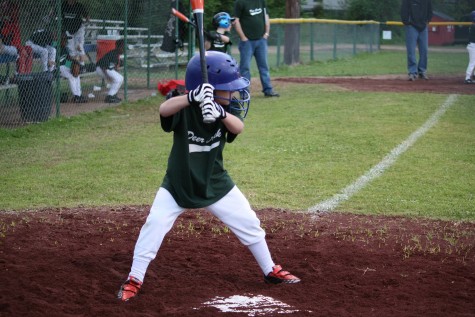Children-related cheating
May 24, 2015

Cheating scandals aren’t purely constrained to purely professional sports. Jackie Robinson West, the 2014 U.S. Little League World Series champions, had its championship title stripped as a result of their use of ineligible players on their roster. By recruiting players from outside stipulated geographical boundaries, the baseball team added more star players to their roster, lending them an unfair advantage over other teams in the league.
Ashbrook shared his insights into why young athletes and coaches may choose to break the rules.
“Realistically, there’s probably a couple main issues,” he said. “They typically stem from how you’re raised, the norms that are set forth by coaches, peers, and others. You’re a kid and you’re raised in a family where cheating is acceptable, obviously that’s going to be more common, more likely. Those around you, whether it is coaches, peers or parents, emphasize [cheating] in some way or allowed it in some way.”
As competition increases, coaches and players alike attempt to find more ways to maneuver around the rules of ethical conduct. According to the 2005 National Youth Behavior Survey, about 60 percent of high schoolers using performance-enhancing drugs (PEDs) said that professional athletes influenced their — or a friend’s — decision to use PEDs.
“At the high school level you might be really good at your sport and when you go to the collegiate level you, the pressure is heightened,” Varsity volleyball player and Yale Volleyball recruit Shreya Dixit (‘15) said in a phone interview. “People who were once great in high school might not be able to feel heightened senses of appreciation in college. In some sports [taking PEDs] is so common at this time that they feel like it’s necessary to take them in order to compete.”
Along with the suspension of the coach, Jackie Robinson West lost its championship title and coaches across the country condemned its actions.
“Shame on the coaches. Shame on the organization,” Forbes said. “It’s one thing to exercise poor judgement through inexperience and immaturity. It’s another thing for an organization and a bunch of grown men to do it. If there’s a segment of our society that needs help, that’s the segment.”
Craig Johnson, Head Coach of the 12U Sunnyvale Girls’ Softball team, echoes that sentiment, reflecting on the impact of this cheating scandal on young children involved in sports.
“That’s when you’re taking sports to a level that it shouldn’t be at, where sportsmanship is not the focus; it’s only winning,” Johnson said. “[Children] should learn that there’s consequences for your action that even though you think you may get away with something, eventually it comes out and there will be logical consequences.”
This article was originally published in the pages of Wingspan, Issue 2, Vol. 1 on May 23, 2015.